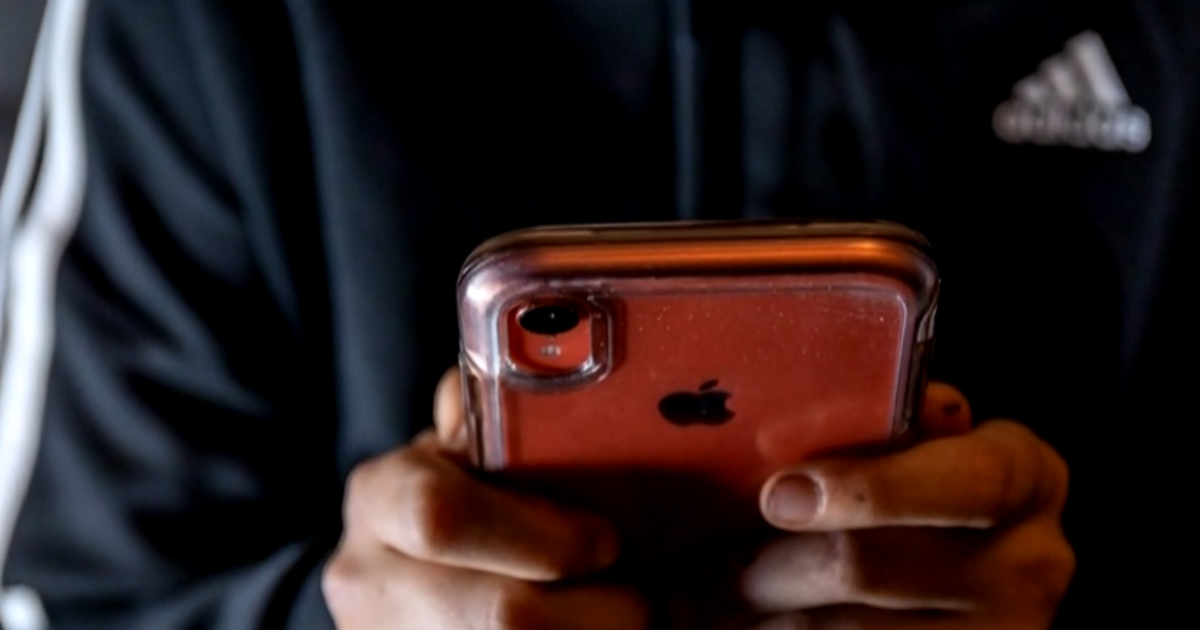

A new online tool aims to help tackle the country's mental health crisis among kids.
A 2019 study from Jama Network found children who spent more than three hours a day on social media were at double the risk for mental health disorders, including depression and anxiety.
The feature known as Balance was developed by security company Aura. It's marketed as the first to use artificial intelligence technology to monitor a child's online habits and wellbeing.
"Our mission's always been to help families navigate all the challenges that come with technology," said CEO Hari Ravichandran. For him, the motivation to create the app was personal after his 13-year-old daughter faced a mental health crisis.
"She didn't wanna get out of her room, like, she was lying in her bed, I don't want to get up, it was very visible that she's struggling," he said.
Ravichandran decided to look at his daughter's phone.
"I looked at it and I mean, it's literally all there. All the questions she's asking, the things that she's struggling with," he said. "To me it seemed very clear that the truth is actually on the device."
How the app works
Ravichadran turned to experts, including child psychologists and clinicians, to help him create the app.
He says his medical team trains AI models to analyze many things including a child's language patterns, online tone, emotional state and late-night activity.
From the child's baseline, AI can detect anomalies, which can signal things like stress or shifting moods.
Parents will then receive reports through the app. The goal is for families to start to have a dialog.
When questioned about mistakes made by AI, Ravichadran acknowledged that the technology is not perfect.
"Like any technology that's new, right? It has to go through its cycle of getting better and better and better," he said.
Response to Balance
Rebecca Wilcoxson's 15-year-old son Sam got his first iPhone in December, but she wanted guardrails.
"It's a lot of pressure on parents to try to keep up with this tech that is constantly changing if not daily, hourly," Wilcoxson said.
She joined a paid clinical study for Balance.
"As I scroll it will explain how his tone was in his texting and then it will show me the most used apps for the time he was on his phone," she said.
She said the app has opened communication with her son.
"I see where there's maybe been some more negative talking and we're able to use that as a talking point together," she said.
Josh Golin heads Fairplay, an advocacy group aiming to protect kids online. He said real change needs to come from lawmakers and big tech companies.
"When they are faced with choices about implementing features that would make kids safer they do not implement those features because it would hurt their bottom line. So if regulation says you have a duty to protect kids, that's when I think we'll start to see real change," Golin said.
But Wilcoxson agrees more oversight is needed.
"If these tech companies have this money to keep developing developing developing, then where is their opportunity to make it safe for our children, the most vulnerable of our population," she said.
Monitoring kids' online activity
While Balance is one of the first to use AI, there are other tools aiming to help parents monitor their child's online activity, including apps like Bark, Qustodio or Norton.
As schools are starting up again soon, some states are taking measures to keep phones out of the hands of kids all together.
At least 31 states and Washington D.C. require districts to ban or restrict students use of phones in school.










-3.png)



